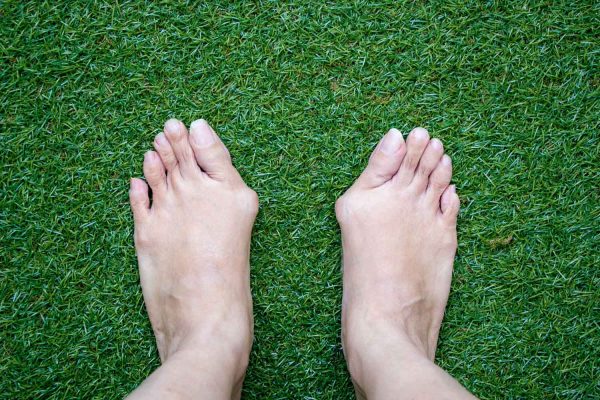I paddled out for a quick sunset surf yesterday, past the breaking waves, and out into the lineup. As I looked around, there were just 6 or 7 other surfers out back, all looking happy, relaxed and content.
There wasn’t a breath of wind, just the smell of my surf wax and just the gentle clink of cutlery and chatter from the beachside restaurants.
Dusk is my absolute favorite time of day to surf: Catching a few waves as the light fades and the lights begin twinkling from shore gives me a feeling unlike no other.
As well as the physical workout a surf sesh gives me, the benefits to my mental health are incredible too.
In this post, I take a look into all of the benefits of surfing – both physical and mental.
Table of Contents
Your wellbeing in this busy world
With increasingly busy and stressful lives, mental health is more important than ever before. Strategies to maintain and improve our mental health help us cope with daily challenges, build resilience, support relationships and allow us to work productively.
In today’s complex world, taking care of our mental health is essential for overall well-being and happiness. Promoting mental health should be a priority for individuals and society as a whole.
By fostering mental health, we can build stronger communities and create a healthier environment for everyone. Given the high rates of mental health issues, we need to reduce stigma and increase access to support and resources.
The mind is just as vital as the body, so mental health deserves the same care and attention.
The physical and mental benefits of surfing
Physical activity is a proven way to boost mental well-being thanks to the release of ‘feel-good’ chemicals in the brain.
When we exercise, our bodies produce endorphins which act as natural pain relievers and mood enhancers. Endorphins interact with receptors in the brain to reduce stress and anxiety and produce a euphoric sensation.
This is why we often feel so good after breaking a sweat. The endorphin rush provided by exercise creates positive feelings that can help improve depression, chronic stress, and other mental health conditions.
By making physical activity a regular habit, we allow our bodies to repeatedly experience the endorphin high, leading to long-term benefits like improved self-esteem, emotional resilience, and improved overall mental health.
Whether going for a run, lifting weights, or doing yoga, exercise gets those endorphins flowing to lift your mood – My suggestion: Track your workouts with a smart watch and incorporate some form of physical activity into your weekly routine.
The surfing workout
One of the most immediate perks of surfing is how great of a workout it is.
Paddling out through the water builds endurance and the constant motion keeps your heart rate up. Popping up onto the board requires balance and engages your core strength.
Couple this with the art of riding a wave – Trimming along the face of a wave challenges your coordination and fast twitch muscles.
Like I mentioned earlier, the physical exertion releases endorphins, leaving you energized and uplifted after a surf session.
Beyond the exercise factor, floating in saltwater exposes you to essential minerals like magnesium, which helps relieve tension and anxiety. The combination of cardio, strength training and ocean minerals adds up to reduced stress and improved self-confidence. The older I get the more I notice how good I feel after even the quickest of surfs.
How does surfing help with depression?
The combination of physical activity, natural beauty, and community make surfing an impactful remedy for depression.
Riding waves provides an endorphin boost along with vitamin D absorption from the sun which improves mood.
The ocean setting immerses you in tranquil nature, bringing a sense of calm and inner peace. Surfing also requires intense focus and presence, serving as a form of mindfulness meditation that clears the mind of depressive thoughts.
Being part of a community also fosters social connectedness and belonging which helps alleviate isolation.
Setting goals and mastering surf skills builds self-confidence to counter depressive feelings of worthlessness. Patience is required which teaches emotional regulation.
Wiping out and paddling back out develops resilience and persistence to avoid giving up. By getting up on your board and into the waves, surfing provides holistic healing for depression.
Why are surfers so calm?
- The ocean environment has a naturally calming effect. The sound of the waves, feeling of floating in the water, and expansive views promote feelings of inner peace and tranquility. Being immersed in the beauty and power of nature brings surfers into the present moment.
- Surfing requires deep concentration and focus. To catch and ride waves properly, surfers must clear their minds, be patient, and tune into the ebbs and flows of the ocean. This mindful focus induces a meditative state.
- The physical demands of paddling out, popping up, and balancing on a surfboard mean surfers exert a lot of energy. This physical tiredness at the end of a session has a soothing effect.
- Endorphins and other feel-good chemicals like dopamine and serotonin are released during surfing due to the exercise. These neurotransmitters boost mood and reduce stress levels.
- Surfing facilitates “flow state” – complete absorption in an activity to the point of losing self-consciousness. Achieving flow results in lower stress and joy.
- Patience is essential in surfing for waiting to catch the right wave. This ability to calmly wait translates to patience in daily life.
- Surfing teaches letting go of control and going with the flow – valuable lessons in handling life’s uncertainties with grace.
How does surfing help PTSD?
Surfing can be an effective therapy for post-traumatic stress disorder (PTSD) in several ways.
The rhythmic motion of surfing helps regulate the nervous system, reducing hyperarousal and anxiety. Floating in the ocean and focusing on the present moment fosters mindfulness, preventing rumination on past trauma.
The natural setting provides a peaceful sanctuary that creates inner calm. Surfing also builds physical strength and stamina, empowering people to regain control and confidence. Having a supportive surf community aids recovery through social connectedness.
Moreover, continuously mastering new surfing skills enhances self-efficacy. The repetitive practice required cultivates patience and emotional regulation skills.
Getting back up after wiping out teaches resilience. Overall, surfing can instill a sense of achievement and flow that counteracts PTSD symptoms of fear, isolation, irritability, and disconnection.
With dedication, surfing’s multisensory, communal and empowering aspects make it a potentially transformative PTSD therapy.
The mental & emotional benefits of surfing
More than a physical workout, surfing is a mental exercise. When you’re dangling your feet off your board, waiting for the next set, you can’t think about anything else – you’re fully present in the moment.
This mindfulness keeps any nagging thoughts at bay, leaving you calm and focused. The constant motion of the ocean creates a meditative state.
As you ride the waves in, the satisfaction of having caught a great swell boosts your mood.
Setting goals to learn new moves or improve your technique gives you something positive to strive toward. The surfing community also provides a sense of belonging, as you bond with others who share your passion.
Patience is required too, as you learn the ebbs and flows of the ocean. And wiping out teaches you to persist and get back on your board.
To Sum Up
In the end, surfing offers a holistic approach to wellness.
The physical rigor of paddling out keeps your body strong and agile. The concentration required brings you into a state of mindfulness.
Accomplishing goals creates confidence and emotional positivity. Being part of the surf community fosters meaningful relationships. Surfing tutors you in patience and resilience.
For a therapeutic experience that engages your body and soul, grab your board and get out there!
I am a 26 year old young and witty girl, who simply loves to write and be around her friends. I am the one who believes in filling the heart of her readers with love, passion and contentment.





